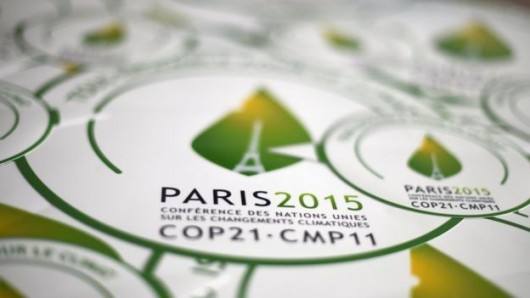China's win-win strategy for coping with climate change
2019-09-30GoldenBeeDing Yihui0

Ding Yihui, Academician of Chinese Academy of Engineering
The future of human society is facing many risks. For environmental risks, the scientific community has concluded six highest risks, including: 1. the occurrence of extreme weather and climate events; 2. the failure of human actions to mitigate and adapt to climate change; 3. the widespread collapse of biodiversity and biological systems; 4. water and food supply shortages continue to increase; 5. wide-ranging natural disasters, such as rapid sea level rise and rapid melting of polar sea ice; 6. environmental disasters and damage caused by humans, including persistent air and water pollution. Each of these risks is closely or directly linked to climate change, so climate change is a core risk.
The report of the Intergovernmental Panel on Climate Change (IPCC) clearly states that human risks are rising due to global warming. 100 years ago, the five climate risks faced by humans were still far away. However, due to the global temperature rising by nearly 1 °C in the past 100 years, it has been approaching the bottom line of the five risks. If the global temperature rises by 1 °C and the total temperature rises to 2 °C, the risk of climate change will reach medium or even high-level risks of five climate impacts. This conclusion is highly credible in science.
Therefore, reducing the disaster risk caused by global climate change is a major problem and challenge faced by all mankind now and in the future. It is related to the sustainable development of human society, not only for our generation, but also for the future generations. In this sense, coping with and sustainably governing climate change is an important aspect of building a global community of shared future. In this process, no country or region can stay out of it.
The report of the Intergovernmental Panel on Climate Change (IPCC) clearly states that human risks are rising due to global warming. 100 years ago, the five climate risks faced by humans were still far away. However, due to the global temperature rising by nearly 1 °C in the past 100 years, it has been approaching the bottom line of the five risks. If the global temperature rises by 1 °C and the total temperature rises to 2 °C, the risk of climate change will reach medium or even high-level risks of five climate impacts. This conclusion is highly credible in science.
Therefore, reducing the disaster risk caused by global climate change is a major problem and challenge faced by all mankind now and in the future. It is related to the sustainable development of human society, not only for our generation, but also for the future generations. In this sense, coping with and sustainably governing climate change is an important aspect of building a global community of shared future. In this process, no country or region can stay out of it.

Through 25 years of hard and tortuous efforts, at the UN Climate Change Conference Paris 2015, the first universal agreement on climate change in the history of humanity, the Paris Agreement, was truly launched. The conclusion and entry into force of this agreement is of great epoch-making significance in human actions to cope with global climate change. It has played a major role in promoting the global economy to transform to pursue the low carbon and clean energy. China is a strong supporter and executor of the Paris Agreement. Under the principle of common but differentiated responsibilities established by the Convention, it will firmly implement the commitments of the Paris Agreement and actively play a greater role in the new era of joint response to climate change initiated by the Paris Agreement.
On the one hand, China must firmly follow the path of low-carbon and clean energy according to its own national conditions, and strive to achieve a win-win development strategy to cope with climate change and economic development. The experience of developed countries and the reality in China show that not only greenhouse gas emission reduction and economic growth are consistent and non-conflicting, but greenhouse gas emission reduction can promote the energy efficiency, productivity and technological innovation. In general, tackling climate change and achieving economic growth can be achieved simultaneously. In this process, the new energy market and carbon storage applications will promote and stimulate greater scientific and engineering technology innovations to achieve a win-win situation for emission reduction and economic development.
On the other hand, the governance of climate change is basically consistent with the governance of environmental pollution, because both are mainly related to the use and emissions of fossil fuels. The use of low-carbon clean energy can simultaneously reduce greenhouse gases that cause climate change and pollutants that cause environmental pollution. Therefore, the targets for coping with climate change and environmental pollution are also consistent, and should be carried out simultaneously to achieve a win-win result. This win-win strategy must also be adopted in the long-term goal of coping with and managing China's climate change and environmental pollution.
It can be seen that China's strategy of coping with climate change is a win-win strategy. It can not only achieve the 2°C temperature targets set by the Paris Agreement, but also promote the sustainable development and strategic transformation of the global and Chinese economies. Ultimately, all mankind will have both suitable climate and clean air, and human society will achieve sustainable development.
(Translated by GoldenBee, the Chinese version of this article is issued on China Sustainability Tribune wechat account)
(Images in this article are from the Internet)
Best Practices
- The 100-year brand — Air Liquide also has a sense of juvenile
- Beijing Public Transportation Corporation: Developing green transportation to build a harmonious and livable capital
- CGN: Building a modern factory in barren deserts and developing a new win-win cooperation model along “Belt and Road”
Upcoming Event

All the materials on the site “Source: XXX (not from this site)” have been reprinted from other media. They do not imply the agreement by the site.
All the materials with “Source: CSR-China Website” are the copyright of CSR-China Website. None of them may be used in any form or by any means without permission from CSR-China Website.
GoldenBee Official WeChat
Copyright © Csr-china.net All Right Reserved.
京ICP备19010813号










